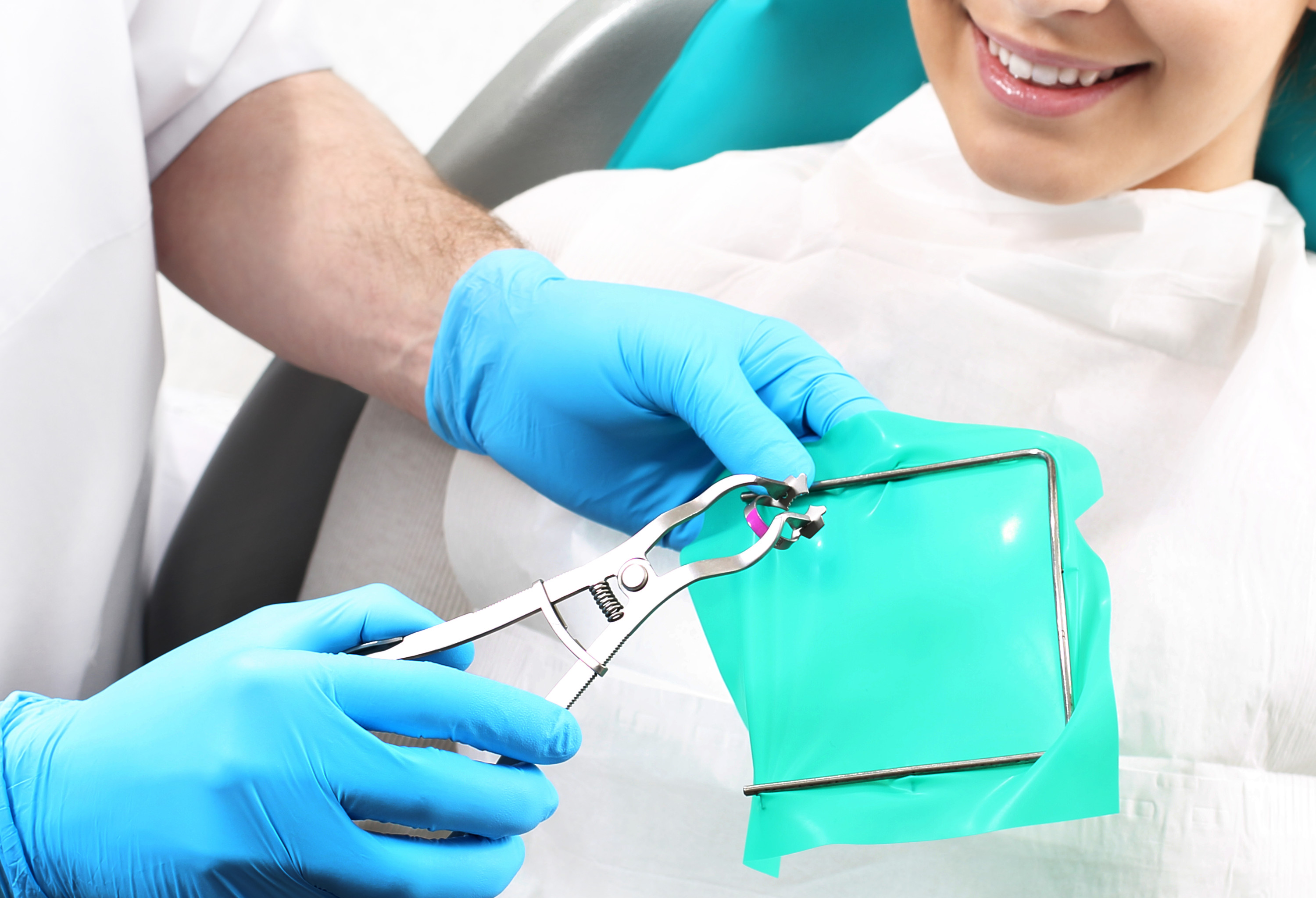A simple tooth extraction near you removes a tooth that our dentist can see in your mouth. General dentists usually perform simple extractions after applying a local anesthetic to the gums near the extraction site to minimize any discomfort experienced by the patient.
Our dentist will use an elevator to loosen the tooth to be extracted, then will grasp the tooth with dental forceps. Once the dentist has a grip on the tooth with the forceps, the dentist will move the tooth back and forth until the periodontal ligament loosens enough or breaks to permit the tooth withdrawal from your alveolar bone. This stage requires our dentist to apply steady and consistent pressure while gently pulling the tooth with the forceps.
Surgical extractions are the removal of a tooth or teeth that are not visible or easily accessed from inside your mouth. The teeth are often not visible because they’ve not yet erupted through your gums or are impacted underneath other teeth. Wisdom teeth removal in Waterloo is a common example of surgical extraction. Because surgical extractions are inherently more complex and invasive than a simple extraction, surgical extraction is usually performed by dental surgeons under general anesthesia in a dental hospital rather than at a standard dental clinic in Waterloo.
To perform a surgical extraction, it’s often necessary to cut into the tissues around the tooth to even be able to access it. Tissues that need to be opened or removed may be soft gum and other soft tissues or portions of your jawbone. Dentists will use drills and, in some cases, soft and hard tissue lasers to gain access to the tooth to be extracted.
Many surgical extractions are complicated because the tooth can not be removed in a single piece. In such situations, our dentist will split the tooth into smaller fragments while still in place before removing each fragment individually.
Potential complications
Extractions are a standard procedure for general dentists and especially for dental surgeons. Every procedure involves a risk of complications such as infection, inflammation and pain. The most complex surgical procedures involve a heightened risk of complications, but the same complications are possible — albeit rare — in both types of procedures. Possible complications relating to simple extractions and surgical extractions include:
- Dry socket if the clot over the extraction site becomes dislodged
- Delayed or prolonged healing due to the side effects of medications
- Secondary bone death in patients who have undergone radiation treatment around the head and neck
- Changes to the alignment of other teeth that follow a natural tendency to shift to fill voids in the jaw
Most complications can be avoided by taking a detailed medical history that fully discloses past medical procedures and current medications. Other complications can be avoided by paying careful attention to and complying fully with the detailed aftercare instructions that our dental clinic in Waterloo will provide you following the extraction procedure. Our dentist may direct you to change the dosage or timing of medications to avoid complications.
When at all possible, dentists seek to preserve teeth from being extracted because every extraction requires later consideration of how to replace that tooth and accommodate for the loss of the dental functions it performed. It is only sometimes possible to avoid extractions, however. If you have received a recommendation to have a tooth extracted and are concerned about the pending proceedings or even want a second opinion, don’t hesitate to contact our dentist near you for guidance and support.

